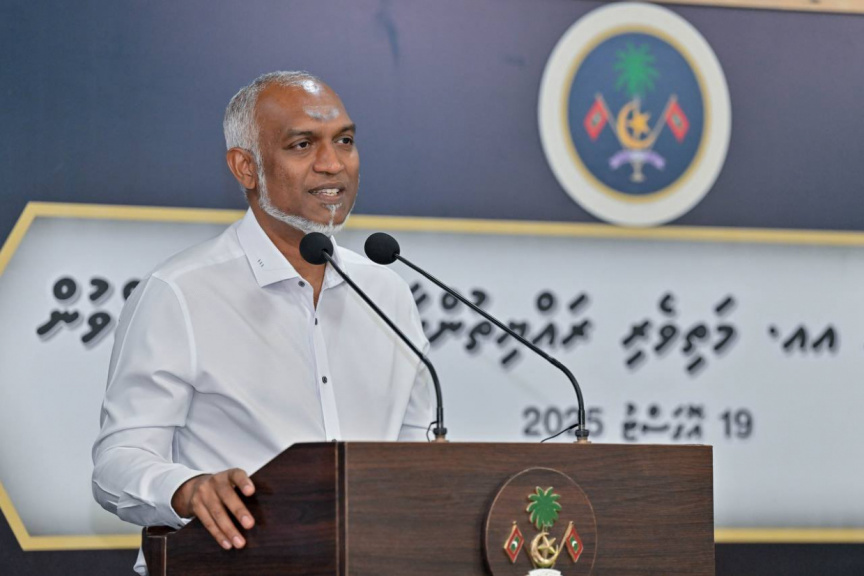
President Dr Mohamed Muizzu speaks at a public meeting in A.A.Mathiveri, on his official tour to the atoll, August 19, 2025. (Photo/President's Office)
President Dr. Mohamed Muizzu announced significant proposed amendments to the Decentralization Act on Tuesday evening, during his ongoing tour of the Ari Atoll. Speaking at a public gathering in Mathiveri, the President outlined changes aimed at streamlining governance and empowering local communities.
Among the key proposals, President Muizzu revealed plans to abolish Atoll Councils, which he described as a "useless position" and an unnecessary "layer" in the administrative structure. He stated that this would require a constitutional amendment and that voters would no longer need to elect Atoll Council members in upcoming local council elections. Following this abolition, island councils are slated to work directly with government ministries.
The President also proposed amendments to reduce the size of island councils in smaller population areas. Under the proposed changes, islands with fewer than 2,000 residents would have three councilors, while those with over 2,000 would have five. City councils, however, would largely maintain their current structure.

Further empowering women, President Muizzu announced an amendment to establish women's development committees with a full-time, elected president, emphasizing this as a measure to empower women.
In a notable move, the President also intends to propose an amendment to merge presidential and parliamentary elections. This amendment, if approved by a public referendum, aims to save state funds, with former Elections Commission Chairman Fuad Thaufeeq previously estimating a saving of at least MVR 130 million.
These reforms, according to President Muizzu, are designed to align the system with the public's desires and ensure direct benefits for the people.
The proposed amendments come on the heels of the government's recent approval of changes to the Decentralization Act, which restricted several powers previously held by councils. The Local Government Authority (LGA) has since directed all councils to comply with the revised Act.
The opposition has voiced strong criticism regarding these amendments and proposed changes, describing them as a "collapse of decentralization." President Muizzu has previously defended the initial amendment to the Decentralization Act, stating that the reforms were made to "champion" the decentralization system.